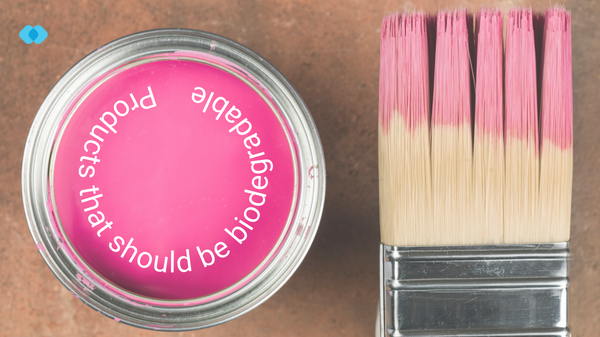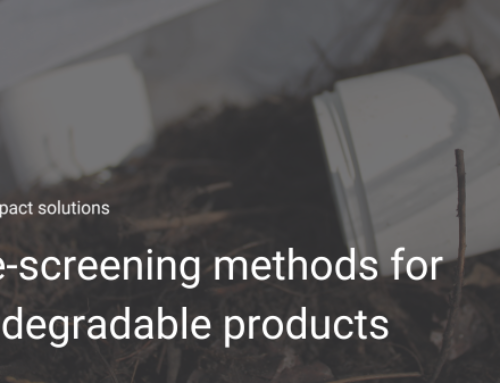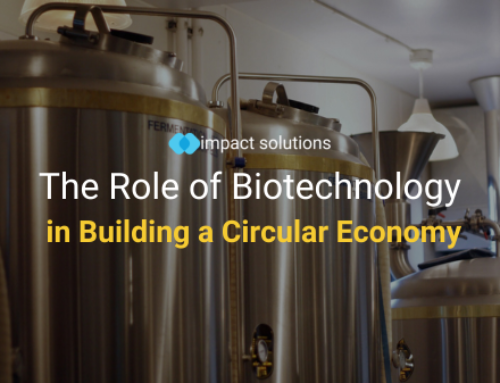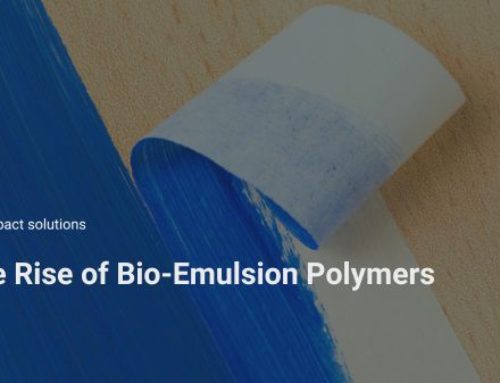With global boiling coining the new phrase of 2023, our inability to regulate our carbon consumption has put businesses under immense scrutiny and has ignited a paradigm shift in materials science to create less impactful products on the planet.
What products should be biodegradable?
Intuitive product design is vital for the best sustainable outcome across the full product life cycle. This step is often overlooked resulting in certain products missing opportunities to become reusable, have less packaging or use a material with a higher recyclability rate. Additionally, the energy used in the process involved to create the product, the consumer use and the infrastructure available to dispose and recycle it are all key in the consideration of designing a product to be biodegradable.
Biodegradable products are also not a one size fits all solution, however, there are many products that can be hugely beneficial to be designed to break down in the environment, such as polymers in liquid formulation, food waste items and conventional plastics that are not collected or recycled.
1. Polymers in Liquid formulation (PLF’s)
Surfactants are ubiquitous in various industries, from household cleaners to personal care products like shampoo helping us maintain clean and hygienic surroundings in our everyday lives. Many conventional surfactants such as detergents contain harmful chemicals and non-biodegradable polymers. Biodegradable detergents offer a sustainable solution, ensuring that these cleaning agents readily break down and do not accumulate in aquatic environments.
Water-Soluble & emulsion Polymers
Water-soluble polymers find applications in paints, agriculture, pharmaceuticals, cosmetics, and household products such as detergent tablet wrappers. However, many conventional water-soluble polymers are not biodegradable, leading to environmental concerns when they are released into natural environments. By opting for biodegradable water-soluble polymers, we can support the development of products that safely dissolve, leaving no harmful residues behind.
Cosmetics
Biodegradable cosmetics, when washed or cleaned off into drains, safeguard water resources by breaking down harmlessly, preventing pollution of aquatic ecosystems. Their eco-friendly formulation reduces the release of harmful chemicals into water bodies, preserving aquatic life and maintaining water quality. At the end of their lifecycle, these products degrade naturally, curbing waste buildup and minimizing strain on landfills. This holistic approach promotes sustainable sourcing, lessens environmental impact, and aligns with responsible consumer preferences.
2. Food waste Items
There are many misconceptions over how to dispose of certain products and misleading information on packaging that leads to more than just food waste going into food waste bins. Products like teabags, coffee pods, chewing gum and food waste bags themselves are often marketed as biodegradable and must be tested to ensure contamination of food waste is avoided. If these products break down in this environment these small items work well being biodegradable. Chewing gum is also often discarded of as food waste which is not biodegradable and should be considering alternative formulations to polyvinyl acetate.
It’s important to consider when designing for this end of life that recycling food waste has different processes regionally in the UK and can cause challenges for this type of environment.
3. Plastics that are not collected/ recycled
Small plastic items that would get lost in recycling systems or otherwise would not be collected or recycled are an example of products that could benefit from being designed to be biodegradable. Single use plastic stirrers, bottle caps, tags for clothing labels or agricultural seed coatings and tree guards could have a reduced environmental impact.
What is the importance of product testing for product advancement?
If you understand the impact your product has on the environment, you can begin to find solutions and make the necessary changes to have less of an impact as a business on our planet. Making more sustainable steps and conducting product testing also provides the relevant data sheets needed to conducting conscious business practices and subsequently build a case for avoiding potential greenwashing claims challenging the integrity of your product.





